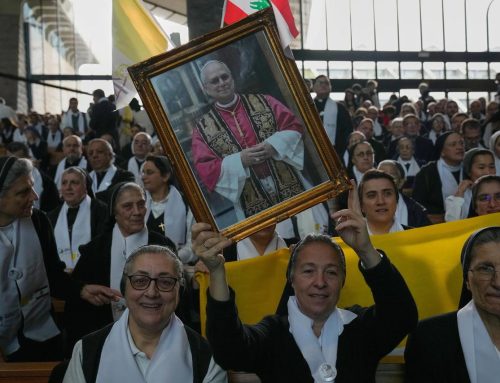Mirko Testa
Zenit
Interview With Martino Diez of the Oasis Foundation
On June 21, some 50 people from 20 countries, Christian and Muslim, will gather for a two-day event in Lebanon, focused on fostering interreligious dialogue on the theme of education.
The Oasis Foundation is sponsoring the meeting in Jounieh, near Beirut, on the theme of “The Education of Faith and Culture: Experience Christian and Muslim Dialogue.”
ZENIT spoke with Martino Diez, the foundation’s research director, about the importance of this theme and the upcoming event.
This gathering is actually an annual event sponsored by the foundation’s scientific committee, which takes place in alternating venues in Venice and Muslim-majority countries.
The Oasis Foundation is based in Venice, where it was created in 2004 following an idea of Cardinal Angelo Scola. It aims to bring together Church people and academics to develop ways of promoting dialogue and coexistence between Christians and Muslims.
ZENIT: What are reasons behind this year’s topic?
Diez: The topic of education that we picked this year clearly follows last year’s, when we met in Venice: namely, tradition.
To borrow an evocative expression with which Cardinal Peter Turkson opens the new issue of the Oasis journal, the “User Instruction Manual” that tradition passes onto us must be checked against the meeting of two freedoms, that to educate and that to be educated. The educational process stands at the intersection where the two meet.
Education is a fundamental anthropological phenomenon. However, the title adds a more specific dimension to it with a reference to “faith and culture.”
We shall thus talk about education with a capital letter, not only as a way of teaching skills but also as a means to pass on a “way of life.” On this point, Christians and Muslims have great deal to discuss.
Our specific historical situation, seen by many in the West as one of an emergency, led Benedict XVI two years ago to write a letter to the faithful of Rome on the urgent need to address the issue of education.
Last year in a report, the Catholic bishops’ conference of Italy formulated a cultural project proposal. However, the matter does not touch the West alone.
The problem, perhaps in a different form, is also felt in Muslim countries, where attempts have been made to reconcile modernity (or perhaps more directly post-modernity) to one’s heritage, often in an economically difficult contexts.
Alongside rich countries with sensible educational policies, many states find themselves with an underperforming educational sector and levels of education that have dropped in the last few decades. At the same time, classic Muslim education based on the traditional Muslim place of learning, the Madrasah, has evolved often in very different directions. For example, Madrasahs in India are very different from those in Pakistan.
In this context, we shall discuss the teaching of religion (or religions), the training of imams, education and dialogue, education and violence, etc.
Finally, one point, the importance of which should not be underestimated, is the fact that the meeting will take place in Lebanon, a complex country full of tensions, but also rich in meaningful experiences in the field of education, which have shaped the image of this smaller version of the Middle East.
ZENIT: How does the Oasis Foundation promote its proposals in education for Christians who live in predominantly Muslim countries?
Diez: Oasis wants to be a place where people can meet and enrich one another, because we all need to learn from each other.
More concretely, we provide Arabic-speaking readers a number of texts from the Magisterium of the Church and classics of Christian thought, as well as articles on philosophy, anthropology, geopolitics and current affairs, mostly through our multilingual journal and newsletter.
Thanks also to Aid to the Church in Need, Benedict XVI’s catecheses on St. Paul have been translated in Lebanon, which we shall publish and send to the bishops of the region. However, these are but tokens of our work.
What we really want to do is bring together as many Christians and Muslims from the region into a network of communion so that they can learn as much as possible from each other’s experiences. Oasis works both ways, and it is hard to say which one gets more or gives more.
ZENIT: The synod of bishops for the Middle East is fast approaching. What food for thought do you have for the synodal fathers who will meet next October in Rome?
Diez: The synod for the Middle East is a great opportunity; it should not be missed.
It is no accident if the idea for the synod came from the Middle Eastern country that has suffered the most in the past few years: Iraq.
The challenge that the title, “Communion and Witness,” suggests is central to the very survival of Catholics in this part of the world.
The Oasis meeting was planned before the synod was announced, but taking our cue from the bishops’ meeting, we hope that the committee can really be an opportunity for communion and witness.





